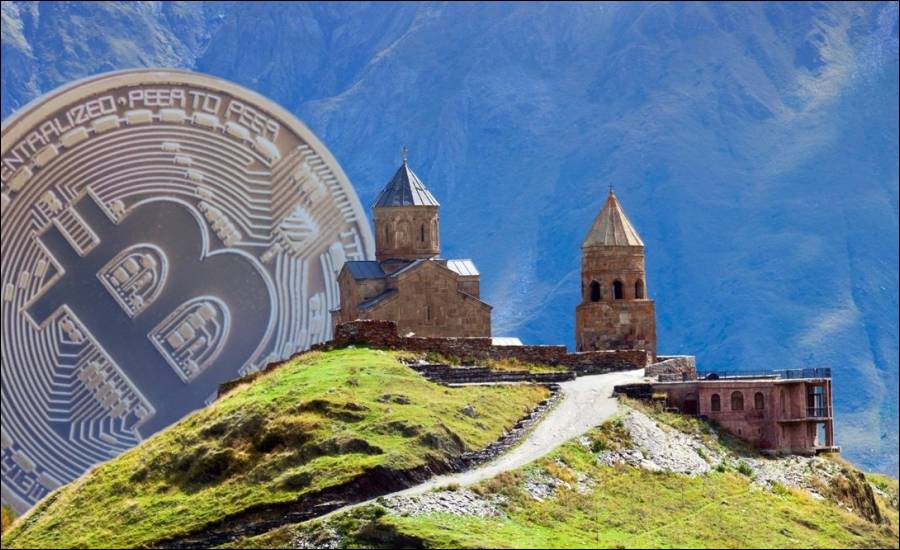As stated in the news in the New York Times; This windowless warehouse in a secluded corner of the town has been working hard for three years, consuming enough energy to light 50,000 homes. The warehouse and dozens of cargo containers are designed in this windy valley for the production of Bitcoin, the cryptocurrency that has created a virtual gold frenzy in the Georgian economy day and night.
Bitcoin company Bifury has produced millions of dollars worth of Bitcoin using extremely cheap electricity generated from the waters flowing from the Caucasus mountains. Although Bitcoin lost value, thousands of Georgians sold their homes and even their cows and invested their money in the powerful computer to join the state-backed Bitcoin industry.
The former prime minister lent Bitfury $10 million from his own pocket in 2015, while the incumbent Georgia Dream Party sold the company 45 acres of land for one dollar. The government is selling electricity to Bitcoin companies at half the price of what is in the US and Europe, and has created free trade shadows to attract tech investors.
Energy-hungry Georgia, with a population of 3.7 million, consumes 10% of its energy consumption in Bitcoin production. The country has consumed so much energy in recent years that the World Bank has cited Georgia as one of the world’s most active centers of cryptocurrency production.
Not everything is rosy in Georgia
But this experimental adventure carries its own risks. With Bitcoin’s falling value, many companies are struggling to meet their energy costs. China’s Bitmain, the world’s largest cryptocurrency company, has closed some of its offices and started layoffs. Last week, London-based Bitfury announced that it will downsize its facilities in Canada.
Georgia is still trying to attract blockchain investors. Georgia aims to loosen tax regulations for this goal, leaving Malta, Bermuda and other tax havens behind. “The digital transformation of the economy is our top priority,” Economy Minister George Kobulia said. “We are trying to support that as much as we can.”
When street demonstrations overthrew the last Soviet-origin leader in 2003, Georgia was dealing with poverty, corruption and a dysfunctional bureaucracy. Taxes were lowered to attract investment, large companies began to appear in the country along with casinos. There are special ATMs in the center of Tbilisi to withdraw Bitcoin. The names of cryptocurrencies are side by side with the euro and the dollar in exchange offices.
Bitcoin mining with friends
When Bitcoin arrived in Georgia, it was worth $350. It climbed as high as $20,000 before it started to drop. While large companies like Bifury can handle volatility, small investors are much more vulnerable.
It is estimated that up to 200,000 people in Georgian villages have installed Bitcoin systems in basements and garages. George Kirvalidze, 35, also joined this adventure. He says that half of the 6,000 families in the town of Kvareli, where he lives, produce Bitcoin. Kirvalidze, who was able to produce 20 Bitcoins, says, “Most of the people who entered this business thought that the high value would always remain like this.”
When Bitcoin was high, up to 200,000 people entered the Bitcoin business in Georgia’s weak economy. Even farmers sold their cows and invested their money in Bitcoin.
Cui-bond?
According to some, the government is subsidizing companies like Bitfury, forcing small investors to withdraw from the market in favor of larger companies. Zurab Chiaberashvili, a lawmaker from the main opposition party, European Georgia, argues that the government’s generosity towards Bifury deprives the country of millions of dollars in tax revenue.
Visits: 70






